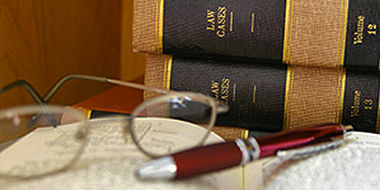|
|
|
CPD Course:
Essential
Drafting and Writing Skills
for Junior Lawyers:
What They Don't Teach
You in Law School
(A Course for
All Junior Lawyers:
Paralegals,
Legal Executives,
Trainee Solicitors,
Pupil Barristers and
Associates)
Presented by
Mr. Christopher Southam,
Author, Trainer, Lawyer,
Former University Lecturer |

|
|
|
      |
|
| Code: |
EVT000000123 |
Level: |
Standard |
|
|
|
|
| Date: |
25 April 2016 (Monday) |
Language: |
English |
|
|
|
|
| Time: |
09:30 - 12:45
(Reception starts at 09:00) |
Accreditation(s): |
LSHK 3.5 CPD Points
(LSHK Allocated Number: 20160980) |
|
|
|
|
| Venue: |
|
Request for Rerun: |
|
|
|
|
|
|
| Presenter's Profile: |
|
|
Christopher was a partner in a law firm in London for many years. He has presented at many legal seminars in London and elsewhere on many topics including:
- Drafting commercial documents,
- Presentation, public speaking and advocacy skills,
- Marketing for lawyers,
- Career advancement through networking; and
- Management skills for lawyers.
He is also an experienced management trainer in both hard and soft skills. Christopher is a published author (on drafting employment contracts), former university lecturer and experienced trainer. He was recently retained to re-draft the corporate precedents of an international law firm in Hong Kong. |
|
|
| Course Outline: |
|
They never really teach practical writing skills in university or law school, do they? Of course, we learn how to write essays of the 'on the one hand, on the other' variety, but we are never taught the art of persuasive writing. We have to try and learn this when we join a law firm - provided someone is willing to teach. It can all be very scary - law practice is very different from law theory - the partner you report to, your colleagues, your clients - what they want from you is clarity - be it in an affidavit, witness statement, heads of agreement; an opinion, or advice, or the contracts or other legal documents you draft. And they certainly don't want a simple 'on the one hand, on the other' approach. They want your judgment, your advice - your opinion.
They want to see it written in plain English - simple language with simple sentences, uncomplicated vocabulary which is easily understood; something with a logical structure, easily assimilated and in language which can easily be translated into a different language.
Writing concisely and clearly in plain English is an essential skill for any lawyer. Clients expect it as do other lawyers whose native language is not English. But for lawyers it is not merely an art - it is also a science. They must write not only to be understood but also not to be misunderstood.
And it's not just about the form - for lawyers, content is crucial, so the lawyer needs to tread a fine line between plain language and ensuring that the legal interests of their clients are met.
Expressing legal ideas in plain, understandable English is not an inherent skill but, with patience, practice and dedication, it can be acquired.
For the junior lawyer, learning how to write with clarity and persuasiveness is an absolute must (and it can be a seriously clever career move).
|
| The course will cover the followings: |
- How to learn the language of plain English
- How to avoid ambiguity
- How to write with clarity, conciseness and persuasiveness
- How to write an advice note for your partner or colleagues
- How to tailor your writing to your audience
- How to avoid the tyranny of the precedent
- How to use formatting for ease of comprehension
- How to use precedents
- Practical exercises in drafting
|
|
|
|
This course is supported by: |
 |
|
|
 |
Relevant CPD Courses |
 |
|
|
|
|
|
|
|
|
|
|
|
|
|
 |
|
 |
|
|
|
|
 |
            |
|
Telephone: +852 3118 2371 | Facsimile: +852 3118 2372 Postal Address: P.O. Box 9993, General Post Office, Hong Kong |
|
|
|
|